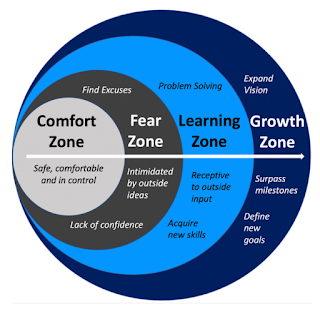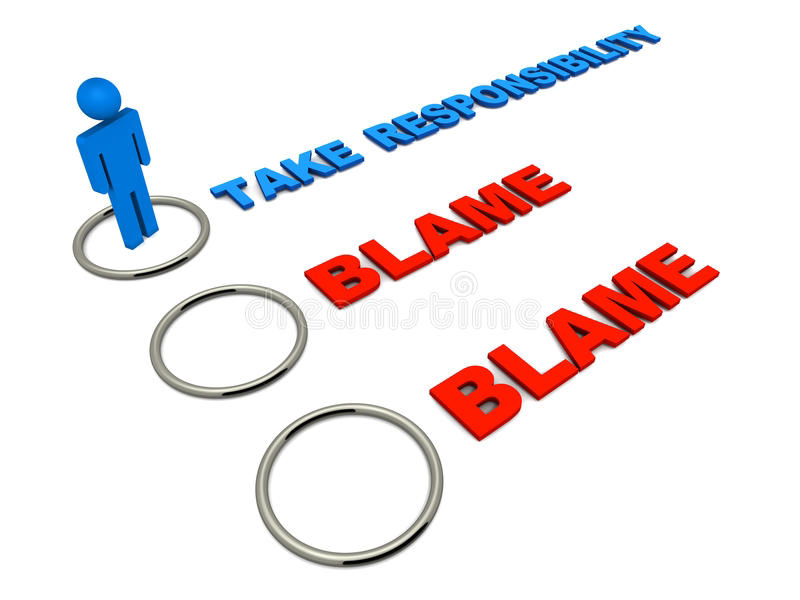AIM BIG, START SMALL
AIM BIG, START SMALL!
“Great things are not done by impulse, but by a series of small things brought together.” - Vincent Van Gogh
The greatest quote I have ever heard on goal actualization would probably be that of the Raphael Stephen, founder/CEO of FAME Foundation, in an online seminar. He said, “have big dreams and split them into small goals.” I have constantly pondered on these words and I have realized that these words did not just come out of the void. They are words that were spoken as a result of deep understanding of the prevailing challenge of young people when it comes to starting out an idea.
Everyday, the world throws at us new challenges that often test the intellectual capacity of this generation. Of a truth, the world needs minds that can think deep and proffer lasting solutions to these challenges. While this generation has proven to be up to the task in creative thinking, the inability to birth these ideas has always served as a stumbling block and the reason for this is not far-fetched. The young minds people of this present era have not mastered the process of turning a little flick of idea into an explosive success.
Putting an idea in motion can seem to be the hardest thing to do for any young mind. Various ideas seem to be flooding the mind at once and there is a seemingly insatiable zeal to carry out all the ideas at once. Most times, the reality of this error dawns at the very first attempt to start out the “big idea” and this often leads to frustration in the end. But there is a simple process to follow in order to break that frustration cycle.
#1 WRITE DOWN YOUR IDEAS: Most times, it is easier to reflect on our ideas and dreams when we are looking at the written form than when we only have a mental picture of them. Writing down your big ideas will help you concentrate on reflecting on each one without joggling them up in your head.
#2 READ OUT YOUR IDEAS: Due to the excitement of having big plans, we often mix up realistic ideas with unfeasible ones. After pouring out all your ideas in black and white, it is essential that you read them out loud to yourself. This will help you spot the unrealistic ones.
#3 SUM UP YOUR IDEAS INTO A MAJOR FOCUS: Remember that all the written ideas flooded in because of one main dream. For instance, if the dream is to see your local area free of environmental pollution, your thought might gone far into thinking of starting a big organization, speaking to the government on the unhygienic state of your area and so on. Bringing back your thoughts to the main reason for your big plans will help you set your priorities straight.
#4 BREAK UP YOUR THE IDEAS INTO GOALS: One major error that confuses people is the difference between dreams and goals. While dreams are the big plans and ambitions you have, goals are the processes that will help you achieve those dreams. By implication, the goals ought to be smaller.Split up your written focus into small, achievable tasks. While dreams may seem vague to achieve (like raising funds for an NGO), goals must be clear, specific and precise.
#5 ASK QUESTIONS: There is an adage that says “he who asks questions will never get lost.” After setting your goals, share them with people that will put you through. Ask question from people who have the same dream as yours, especially those who are already living out their dreams. But be careful not to share your plans with small minded people. In the words of Gbenga Adebambo, “if you want to kill a big dream, tell it to small minded people.” Make sure that you don’t share your dreams with people who feel threatened by it.
#6 TAKE THE GOALS STEP BY STEP: Even after writing out your goals, there is tendency to rush at them at a time. Discipline yourself to take the steps one at a time, starting from simple to complex. Instead of starting from the goal to have a registered anti-child abuse NGO, why not start with the simple task of educating your friends on the dangers of child abuse? Picking the goals step by step will help to ease the tension around the big dream and help you record maximum success.
#8 RE-VISIT YOUR GOALS: From time to time, go back to your goal list and read them. See how many of your goals you have been able to achieve. Reflect on the ones you are having issues with and how you can make it better. Why this step is important is that it will help you ensure that you have not deviated from your main focus. Doing this will ensure that your actions are at per with your goals. It will also help you to tick the goals you have achieved and add new ones as you develop them.
The key to achieving big dreams is to start with small goals. Little drops they say, make a mighty ocean. If you want to be a world-class singer, start by joining your school choir. If you want to be as great a footballer as Lionel Messi, start by joining the football club in your street. You want to be an author someday, begin to write little articles, stories and essays for your class citation. In the words of Mark Twain, “the secret to getting ahead is getting started. The secret of getting started is breaking your complex overwhelming tasks into small manageable tasks, and then starting on the first one.”
“The man who moves a mountain begins by carrying away small stones.” - Confuciusaaa
“Great things are not done by impulse, but by a series of small things brought together.” - Vincent Van Gogh
The greatest quote I have ever heard on goal actualization would probably be that of the Raphael Stephen, founder/CEO of FAME Foundation, in an online seminar. He said, “have big dreams and split them into small goals.” I have constantly pondered on these words and I have realized that these words did not just come out of the void. They are words that were spoken as a result of deep understanding of the prevailing challenge of young people when it comes to starting out an idea.
Everyday, the world throws at us new challenges that often test the intellectual capacity of this generation. Of a truth, the world needs minds that can think deep and proffer lasting solutions to these challenges. While this generation has proven to be up to the task in creative thinking, the inability to birth these ideas has always served as a stumbling block and the reason for this is not far-fetched. The young minds people of this present era have not mastered the process of turning a little flick of idea into an explosive success.
Putting an idea in motion can seem to be the hardest thing to do for any young mind. Various ideas seem to be flooding the mind at once and there is a seemingly insatiable zeal to carry out all the ideas at once. Most times, the reality of this error dawns at the very first attempt to start out the “big idea” and this often leads to frustration in the end. But there is a simple process to follow in order to break that frustration cycle.
#1 WRITE DOWN YOUR IDEAS: Most times, it is easier to reflect on our ideas and dreams when we are looking at the written form than when we only have a mental picture of them. Writing down your big ideas will help you concentrate on reflecting on each one without joggling them up in your head.
#2 READ OUT YOUR IDEAS: Due to the excitement of having big plans, we often mix up realistic ideas with unfeasible ones. After pouring out all your ideas in black and white, it is essential that you read them out loud to yourself. This will help you spot the unrealistic ones.
#3 SUM UP YOUR IDEAS INTO A MAJOR FOCUS: Remember that all the written ideas flooded in because of one main dream. For instance, if the dream is to see your local area free of environmental pollution, your thought might gone far into thinking of starting a big organization, speaking to the government on the unhygienic state of your area and so on. Bringing back your thoughts to the main reason for your big plans will help you set your priorities straight.
#4 BREAK UP YOUR THE IDEAS INTO GOALS: One major error that confuses people is the difference between dreams and goals. While dreams are the big plans and ambitions you have, goals are the processes that will help you achieve those dreams. By implication, the goals ought to be smaller.Split up your written focus into small, achievable tasks. While dreams may seem vague to achieve (like raising funds for an NGO), goals must be clear, specific and precise.
#5 ASK QUESTIONS: There is an adage that says “he who asks questions will never get lost.” After setting your goals, share them with people that will put you through. Ask question from people who have the same dream as yours, especially those who are already living out their dreams. But be careful not to share your plans with small minded people. In the words of Gbenga Adebambo, “if you want to kill a big dream, tell it to small minded people.” Make sure that you don’t share your dreams with people who feel threatened by it.
#6 TAKE THE GOALS STEP BY STEP: Even after writing out your goals, there is tendency to rush at them at a time. Discipline yourself to take the steps one at a time, starting from simple to complex. Instead of starting from the goal to have a registered anti-child abuse NGO, why not start with the simple task of educating your friends on the dangers of child abuse? Picking the goals step by step will help to ease the tension around the big dream and help you record maximum success.
#8 RE-VISIT YOUR GOALS: From time to time, go back to your goal list and read them. See how many of your goals you have been able to achieve. Reflect on the ones you are having issues with and how you can make it better. Why this step is important is that it will help you ensure that you have not deviated from your main focus. Doing this will ensure that your actions are at per with your goals. It will also help you to tick the goals you have achieved and add new ones as you develop them.
The key to achieving big dreams is to start with small goals. Little drops they say, make a mighty ocean. If you want to be a world-class singer, start by joining your school choir. If you want to be as great a footballer as Lionel Messi, start by joining the football club in your street. You want to be an author someday, begin to write little articles, stories and essays for your class citation. In the words of Mark Twain, “the secret to getting ahead is getting started. The secret of getting started is breaking your complex overwhelming tasks into small manageable tasks, and then starting on the first one.”
“The man who moves a mountain begins by carrying away small stones.” - Confuciusaaa


Thanks for this piece Goodluck!
ReplyDeleteWeldone ma'am 🙇
You're welcome ma
DeleteThis comment has been removed by the author.
ReplyDelete